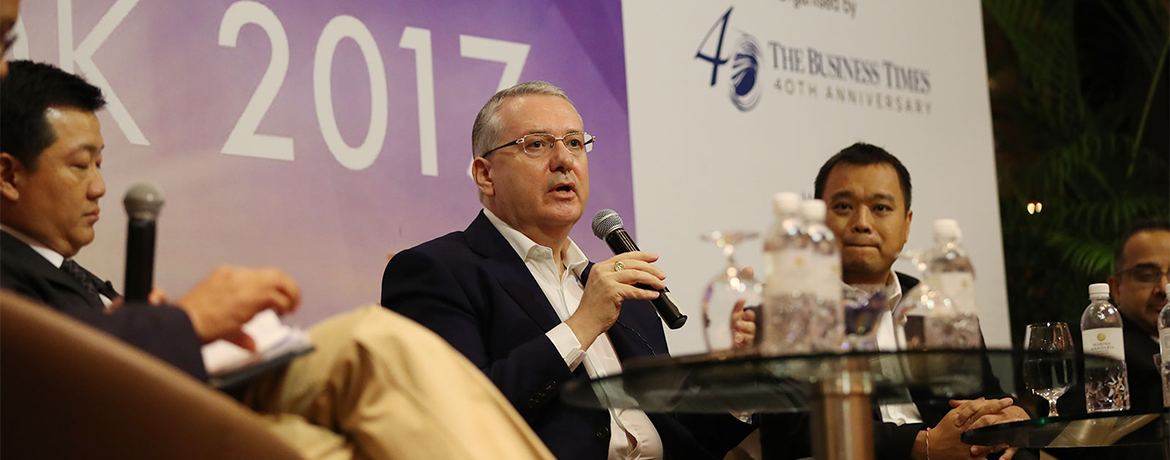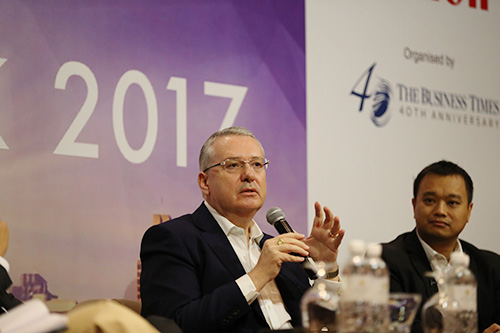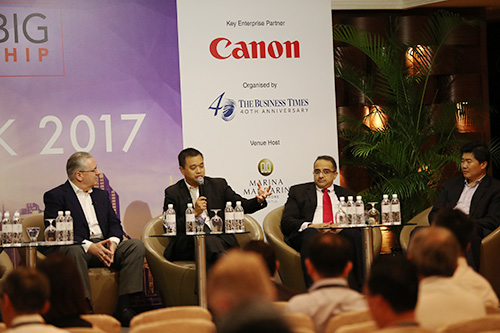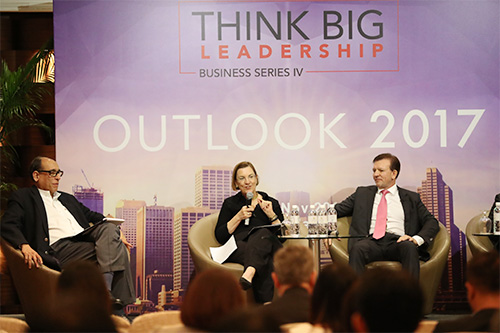Business in a Time of Donald Trump - Business Insight

Business in a Time of Donald Trump
The result of the recent US Presidential Election was met with some concerns amid business communities around the world. Moments after Donald Trump was deemed the winner of said election, Japan’s Nikkei index plunged 5.4%, thus prompting emergency meetings among the country’s financial leaders. South Korea’s National Security Council, too, convened to assess the uncertainty ahead. It is clear, then, that no one is quite sure how things are going to turn out in the next four years.
Economists around the world have reasons to worry. Even though President-elected Donald Trump spent the better part of his life as a businessman — as well as a stint as a reality show host and creator — does this mean that his imminent presidency is necessarily good for businesses?
Aside from the general outlook of 2017, Trump was the most talked-about topic during the latest edition of Canon’s Think Big Leadership Business Series event held at Marina Mandarin Hotel on 15 and 16 November 2016. In case you missed it, here are the key takeaways for the year ahead.
Cloudy With a Chance of Showers
Business outlook for 2017 had already seemed gloomy even before the US Presidential Election. For example, according to The Business Times, the existing economic downturn will be compounded in 2017 by Brexit, China’s slowdown, as well as the US elections. Guest speakers at the event largely agreed with the sentiment, though that is not to say that they were defeatists. In the contrary, most speakers agreed that there are opportunities to be had for businesses – MNCs and SMEs alike – but only if they know where to look.

Victor Mills, CEO of Singapore International Chamber of Commerce (SICC), emphasised the importance of regionalisation, “Everyone is finding ways to stay relevant, and the region offers vast opportunities to collaborate and innovate. We cannot ignore these hugely diverse markets at our doorsteps.” Where, then, are the opportunities in Southeast Asia? Victor shared that members of SICC are already aggressively setting up factories in Thailand, as well as expanding software capabilities in Vietnam. To him, the biggest market has to be Indonesia, “If we can figure out the aspirations of the millions of consumers in Indonesia and collaborate with other companies to develop solutions, [that] will be a wonderful story to tell.”

Is this easier said than done? After all, SMEs generally do not have the same resources as MNCs to expand overseas quite as easily. However, Kurt Wee, President of the Association of Small and Medium Enterprises, strongly believes that the Singapore brand is strong enough a competitive edge, “If you take our status of efficiency and export those practices into overseas subsidiaries, and you run efficient operations from there, I am sure you will compete even better than the domestic players,” Kurt explained. “Singapore has always been about taking our constraints and [turning] them into strengths when operating in foreign markets. If we can conduct our businesses with the same leanness as we do in Singapore, we can be strong competitors.”
The Trumpian Future
The second day’s discussions inevitably steered towards Donald Trump. The effects of Trump’s presidency on the global economy, or ‘Trumponomics’, remains to be seen. However, experts during the events made some predictions for the road ahead, and how it will impact Singapore as a whole.
Dr Chua Hak Bin, Consultant of Economics & Investment Strategy, GIC, began with the positives: If Trump holds true to his promises, businesses — especially those with presence in the US — may see major tax reforms within the next four years. This falls in line with the deregulatory agenda that the Republican Party — which currently holds both the House and the Senate — has been pushing for even during President Obama’s administration.
However, Hak Bin also gave the flipside of Trump’s presidency: While deregulations may spell some positive outcomes, he wondered if Trump’s anti-immigration and anti-trade policies would ultimately hurt growth potential.

What does all of this mean for Singapore and Asia at large? “Trump or no Trump, life goes on for Asian consumers,” said Associate Professor Lewis Lim, Deputy Director of the Institute for Asian Consumer Insight — and the panel agreed. Judith Fergin, Executive Director of the American Chamber of Commerce, was the first to provide reassurance, “Trump will be the 10th US President since Singapore’s independence. From a political point of view, the ASEAN relationship [with the US] creates jobs in every single American state. That’s why I believe that our economic relationships will continue to expand.” Judith adds that, instead of focusing on the uncertainties, there are a lot to be certain of in the coming year. “Political temperatures go up and down, but businesses go on. I’m an optimist,” she added.
The Way Forward
The key takeaway over the two-day event is clear: decisions that President-elect Trump make may impact the global economy. However, for most SMEs, it is business as usual. There are risks to be had, true, but opportunities, too, are abound. Perhaps Vasu Menon, Senior Investment Strategist from OCBC, summed it up best when he said, “I think it is important for SMEs to be aware of these changes that are taking place on the global front, and some of these changes will create problems. [However], I think even in a crisis, there are opportunities.”
More than just regionalisation and a sense of optimism, Vincent Low, Director and General Manager at Canon Singapore, believes that mitigation of risks ultimately comes down to people, “Having good products and solutions is important. However, I believe in nurturing, training and retraining people. I want to make sure that my guys are professional, even in tough times.” This is part of the reason why, beyond the products and services, Canon’s employees form the heart of the brand. The community, perhaps more than anything, can weather the storm.
Watch the highlight reel of the Think Big Leadership Business Series IV here.
For more case studies and business solutions to power up your start-up or SME, follow Canon Singapore on LinkedIn for the latest updates!
